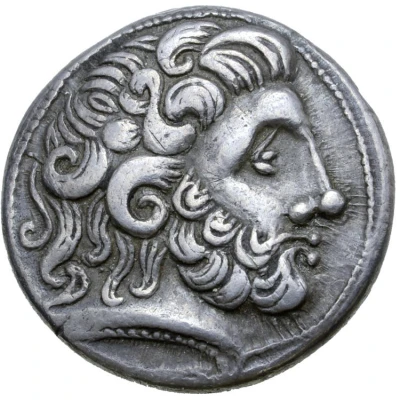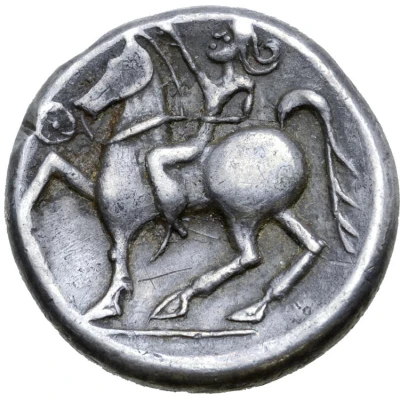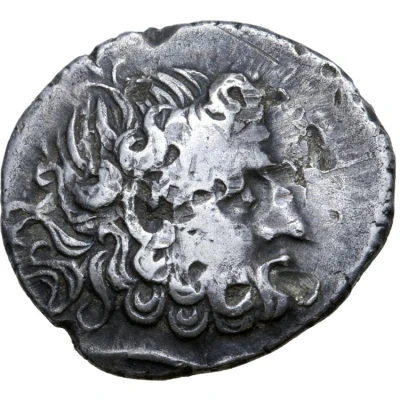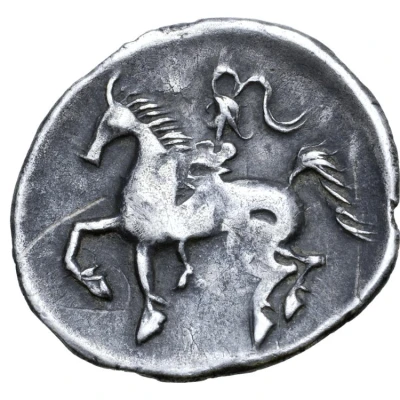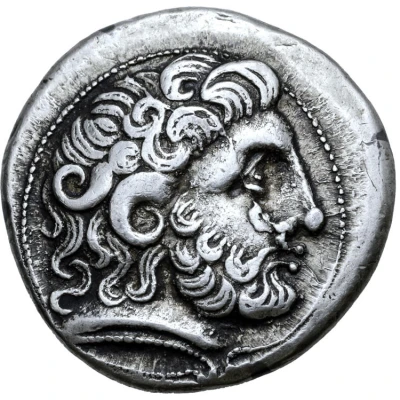
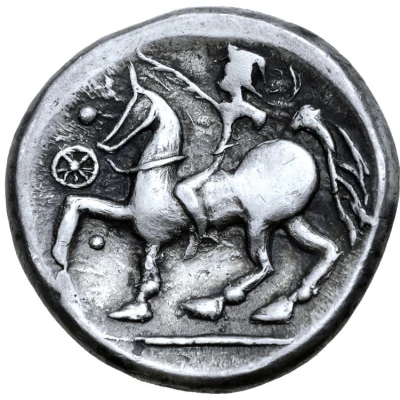

© Roma Numismatics Limited
Tetradrachm Zweigarm Type 300 BC - 201 BC
| Silver | 13.34 g | 26 mm |
| Issuer | Uncertain Eastern European Celts (Uncertain Central and Eastern European Celts) |
|---|---|
| Type | Standard circulation coin |
| Years | 300 BC - 201 BC |
| Value | Tetradrachm (4) |
| Currency | Drachm |
| Composition | Silver |
| Weight | 13.34 g |
| Diameter | 26 mm |
| Shape | Round (irregular) |
| Technique | Hammered |
| Orientation | Variable alignment ↺ |
| Demonetized | Yes |
| Updated | 2024-10-09 |
| Numista | N#190888 |
|---|---|
| Rarity index | 100% |
Reverse
Stylised rider wearing crested helmet on horseback to left, right arm outstretched; wheel and pellets before.
Comment
Examples of this type:• Example #1 (13.34g, 26mm, 12h; Near Extremely Fine)
© Image courtesy of Roma Numismatics Limited
◦ Ex-Hermann Lanz Collection; published in Kostial #584;
◦ Exhibited by the Staatlichen Münzsammlung München at the 1997 International Numismatic Congress in Berlin; at the Berliner Bank also in 1997; also exhibited at the Luitpoldblock Palmengarten, Munich in 2003 (exhibition #104[obverse]);
◦ Auctioned by Roma Numismatics Ltd, Auction XVIII, 29 September 2019, lot 152. Sold for 800 GBP.
◦ Auctioned by Schulten & Co, October 1987, lot 32.
• Example #2 (13.30g, 24mm, 12h; Good Very Fine)
© Image courtesy of Roma Numismatics Limited
◦ Ex-Hermann Lanz Collection; published in Kostial #585;
◦ Exhibited by the Staatlichen Münzsammlung München at the 1997 International Numismatic Congress in Berlin; at the Berliner Bank also in 1997; also exhibited at the Luitpoldblock Palmengarten, Munich in 2003 (exhibition #104[reverse]).
◦ Auctioned by Roma Numismatics Ltd, Auction XVIII, 29 September 2019, lot 156. Sold for 1,100 GBP.
Interesting fact
The Tetradrachm (Zweigarm Type) coin from Uncertain Eastern European Celts (Uncertain Central and Eastern European Celts) features a unique design element - a stylized depiction of a pair of wrestlers, known as the "Zweigarm" motif, which is a hallmark of Celtic art from this region and time period. This design element is believed to symbolize strength, courage, and the struggle between opposing forces, reflecting the cultural values and beliefs of the Celts who created it.
